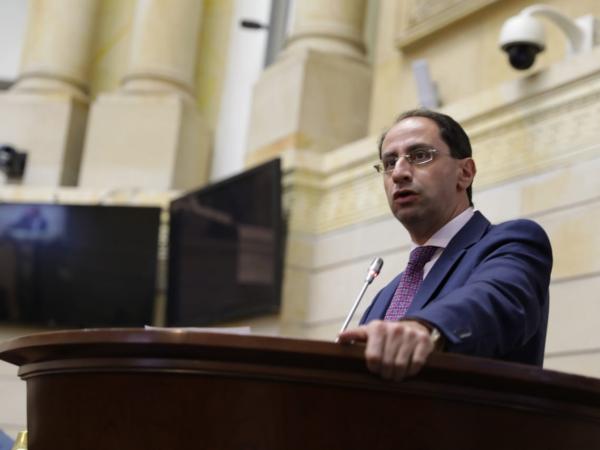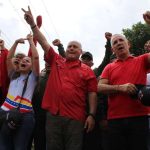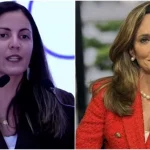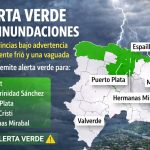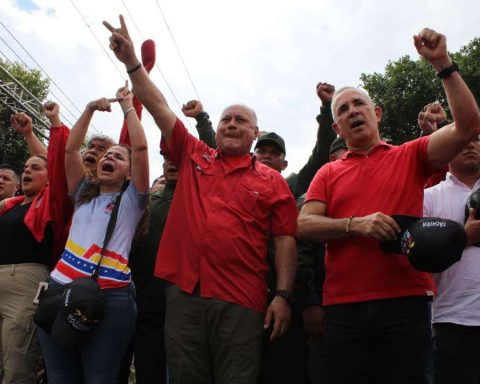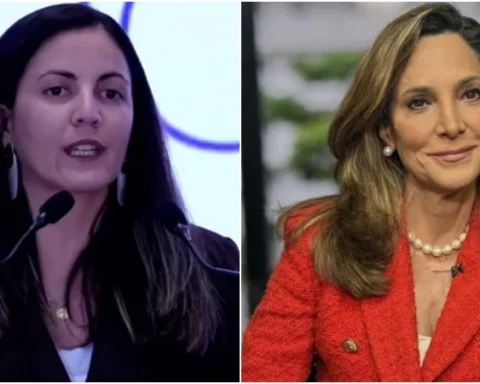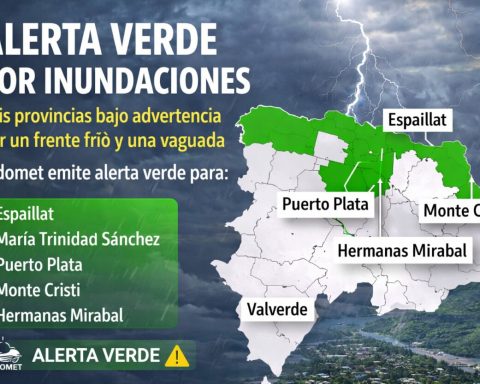Macroeconomic management has been key after the economic crisis derived from the covid-19 pandemic, and the person in charge of commanding the Treasury and Public Credit portfolio for the last 13 months has been Jose Manuel Restrepo. The minister spoke with Portafolio about the economy that leaves the new government, the merger process and the challenges that his successor will face.
(Read: José Antonio Ocampo: who is he and what role will he play in Petro’s government).
What economy leaves the new minister or minister?
The economy can be seen from several sides. The first is that of growth, after the worst shock in our history, we delivered an economy that is going to close 2022 with the highest growth rate of the OECD countries. Also with a growth that last year was the highest in the recent history of the country, and with dynamic sectors such as commerce, industry, services and artistic activities.
We delivered a reactivation that has managed to return to the levels of multidimensional poverty and equality that it had in the pre-pandemic, and has recovered 91% of employment, and with the highest figure in the last 50 years in exports of non-mining goods.
And on the tax side?
We deliver a tax collection growing above the goal by 15%, added to the growth and effort in terms of spending and public investment that have allowed us to deliver an economy that in 2022 will achieve a fiscal deficit of 5.6%.
One of the biggest challenges today is inflation. What strategies does this government leave you to combat it?
That is one of the most important challenges, and this government has applied the entire possible battery of instruments; monetary normalization, that decision to increase the interest rate by the Banco de la República; the efforts to reduce the fiscal deficit are substantive, so that there is less pressure via the exchange rate; reduce tariffs on the import of inputs for agricultural products, as well as the reduction of freight, and the work of the Ministry of Agriculture in terms of subsidies is also very important. If this path of instruments continues, it will be possible to contain the inflationary phenomenon, which today ends up being more global than national.
What does the future administration need to maintain that path?
There are several keys: give continuity to the effort that has been made in terms of infrastructure, continue deepening the quality and relevance of education, and efforts to improve the country’s competitiveness.
To the extent that this is achieved, there will be a platform for additional potential economic growth to be achieved.
Second, it must be ensured that the adjustment of public finances and fiscal sustainability continue, that any program, project or initiative of public spending or investment is financed with a secure source of income.
And third, the continuity of the country’s purpose of achieving environmental sustainability must be guaranteed.
You lead the joint with the new government, what is your role there?
I am part of a work team that interacts with the President-elect’s junction team. We have already agreed on a timetable, purposes, objectives and actions to start the meetings in each of the 23 sectors starting this week and define the meeting timetable for the 190 government entities. We wanted to build a transparent junction, open to the citizen.
An institutional joint, which follows the principles of democracy and is harmonious, where there is no discontinuity and the citizen is affected.
This government sets the budget and the next one executes it, what will it leave?
We only present a draft budget to Congress, but the next government can perfectly modify it in the course of the discussion, and can perfectly incorporate the programs and projects that it has planned, and when it needs sources of financing, it can sit down and find ways of financing it. in case you need additional resources.
We are presenting a preliminary project that follows the rules defined by the Medium-Term Fiscal Framework, that is, it follows compliance with the fiscal rule and in some way gives continuity to the programs from the different portfolios, within the framework of the resources that The fiscal rule for 2023 is currently available.
What is the greatest achievement of the Treasury under your management?
Having achieved a successful economic reactivation, not only for Colombia, but also for the world, and a successful reactivation that had heart, that recovered a good part of the jobs lost in the pandemic, that returned to the levels of multidimensional poverty of before pandemic, and improved those of equity.
There has been a reactivation that benefits 29 million Colombians, with the financing of social programs with money we reach more than half of this Nation.
What advice would you give to the next Minhacienda?
With a democrat’s vision, it seems disrespectful to leave advice to the next government. I deeply respect the proposals and projects that the incoming government has, but I believe that this country must continue building on what has been built, improving what can be improved, and strengthening the good that has been built up to now.
(Also: Nuevo Minhacienda, the code name to appease the market).
Regardless of which, I think it is important to continue on a path where Colombia grows more, reduces its poverty, inequality and unemployment, and commits to sustainable growth in social, environmental, business and fiscal matters.
How do you see the importance of oil revenues and what alternatives does the new government have?
Something very important, which was left in the Social Investment Law with the new fiscal rule, is that the original oil revenues, that is, the oil boom, cannot be used for investment spending in the current year.
This is because the figure of the oil cycle was created. The budget or resources that are going to be executed next year do not depend on the oil boom, but the fact that these resources reduce the fiscal deficit and public debt does depend on it. That is why the debt reaches the debt anchor in the Medium-Term Fiscal Framework so quickly.
With these resources we are achieving a very important advance in public finances.
LAURA LUCIA BECERRA ELEJALDE
